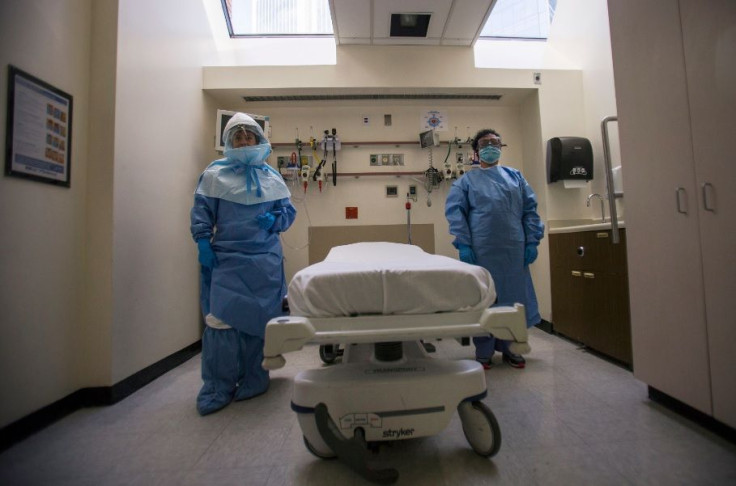NYC Potential Ebola Patient: Doctor Craig Spencer Under Evaluation After Trip To Guinea

A doctor was being evaluated for Ebola at a New York City hospital after coming down with a fever and gastrointestinal system symptoms following a trip to Guinea, one of the nations hardest hit by the outbreak of the deadly disease in West Africa. He called 911 after he started feeling sick Thursday and was taken in a special protective vehicle to Bellevue Hospital in Manhattan from a location on West 147th Street, the New York City Department of Health & Mental Hygiene (DOHMH) confirmed in a statement posted online Thursday afternoon.
The department described the patient only as a "health care worker who returned to the U.S. within the past 21 days from one of the three countries currently facing the outbreak of this virus," but NBC 4 New York reported that two law enforcement sources identified the patient as a male doctor who had worked for an aid organization in West Africa treating Ebola patients and said he returned from West Africa about 10 days ago. The New York Daily News reported that he was identified as 33-year-old Craig Spencer, who had worked in Guinea with the aid group Doctors Without Borders, and that he initially self-quarantined upon his return to the U.S.
"The patient recently returned from Guinea, one of the three countries currently dealing w/ an Ebola outbreak," the DOHMH tweeted from its official @nychealthy Twitter account, adding in later tweets that "Our disease detectives are actively tracing all of the patient’s contacts to identify anyone with potential risk. We have established protocols to identify, notify, & if necessary, quarantine any contacts of Ebola cases."
Spencer, who was transported to Bellevue in "a specially trained HAZ TAC unit wearing Personal Protective Equipment (PPE)," according to the DOHMH, is being tested for Ebola because of his symptoms and his recent travel and work history. He will also be tested for other potential illnesses like salmonella, malaria and the flu. The preliminary results of the tests should be available within the next 12 hours, the department said in its statement. The DOHMH press office referred requests for comment to the department's online statement, and the the New York City Health and Hospitals Corporation (HHC) -- which oversees the city’s public hospital system -- did not immediately respond to emails and calls requesting comment Thursday afternoon.
Though no confirmed cases of Ebola have been identified in New York, the city’s 11 public hospitals isolated 27 patients suspected of having contracted the virus in the two months preceding Oct. 9, Ian Michaels, a spokesman for the HHC told International Business Times at the time.
“In the last two months we’ve had over 25 patients who have been held on suspicion that they had Ebola, but none of them turned out to have it. That’s just in the 11 hospitals that make up the New York City public hospital system, but then there are a lot of other hospitals in New York,” Michaels said Oct. 9. “Over the last two months we’ve had, I believe, 27 patients isolated on suspicion of Ebola, but none of them had it.”
The city system has been proactive in preparing its hospitals for potential Ebola victims. “Fake” Ebola patients have been sent to hospitals across the city in order to test how prepared they are to handle real potential Ebola patients, Michaels said, and the testing will continue as long as the outbreak remains a major threat.
© Copyright IBTimes 2024. All rights reserved.





















